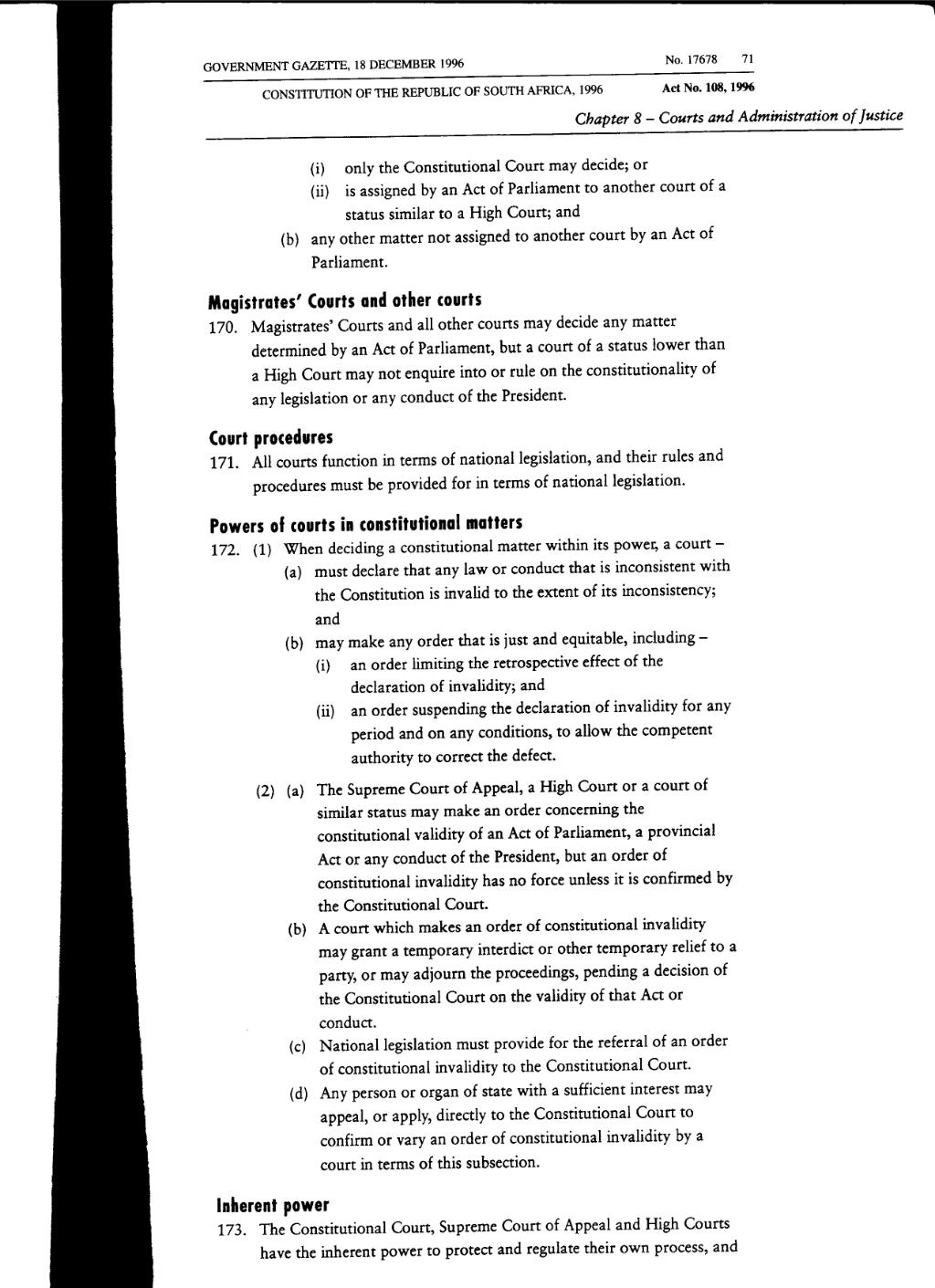This page has been validated.
Government Gazette, 18 December 1996
No. 17678 71
| Constitution of the Republic of South Africa, 1996 | Act No. 108, 1996 |
Chapter 8—Courts and Administration of Justice
(i)
only the Constitutional Court may decide; or(ii)
is assigned by an Act of Parliament to another court of a status similar to a High Court; and(b)
any other matter not assigned to another court by an Act of Parliament.
Magistrates’ Courts and other courts
170.
Magistrates’ Courts and all other courts may decide any matter determined by an Act of Parliament, but a court of a status lower than a High Court may not enquire into or rule on the constitutionality of any legislation or any conduct of the President.
Court procedures
171.
All courts function in terms of national legislation, and their rules and procedures must be provided for in terms of national legislation.
Powers of courts in constitutional matters
172.
(1)
When deciding a constitutional matter within its power, a court —(a)
must declare that any law or conduct that is inconsistent with the Constitution is invalid to the extent of its inconsistency; and(b)
may make any order that is just and equitable, including —(i)
an order limiting the retrospective effect of the declaration of invalidity; and(ii)
an order suspending the declaration of invalidity for any period and on any conditions, to allow the competent authority to correct the defect.(2)
(a)
The Supreme Court of Appeal, a High Court or a court of similar status may make an order concerning the constitutional validity of an Act of Parliament, a provincial Act or any conduct of the President, but an order of constitutional invalidity has no force unless it is confirmed by the Constitutional Court.(b)
A court which makes an order of constitutional invalidity may grant a temporary interdict or other temporary relief to a party, or may adjourn the proceedings, pending a decision of the Constitutional Court on the validity of that Act or conduct.(c)
National legislation must provide for the referral of an order of constitutional invalidity to the Constitutional Court.(d)
Any person or organ of state with a sufficient interest may appeal, or apply, directly to the Constitutional Court to confirm or vary an order of constitutional invalidity by a court in terms of this subsection.
Inherent power
173.
The Constitutional Court, Supreme Court of Appeal and High Courts have the inherent power to protect and regulate their own process, and